Mastering Dependent Clauses: Definition, Examples, & Rules


Imagine being able to craft sentences that not only captivate your reader but also convey your message with crystal-clear precision. When crafting sentences, the art lies in understanding the building blocks that make them whole. Clauses are these essential components, and they come in two main types: independent and dependent. Understanding a dependent clause is, therefore, fundamental to mastering sentence structure.
Consider this: professional writers and successful students alike share one common skill—they understand the fundamental building blocks of sentences, particularly the role of clauses. By wielding expertise over a dependent clause, you can construct sentences that are not only grammatically correct but also clear and effective. This understanding is important for expressing your ideas with precision—a skill that matters whether you're writing an essay or applying for a scholarship.
As a student, having won several scholarships and written many papers, I understand the importance of sentence structure in crafting sound sentences. So, what is a dependent clause? In this article, I'll define dependent clauses and provide clear examples so you can start crafting excellent sentences. Let's get to it!
Need ways to fund the academic future your deserve? Create a free profile on Bold.org and start winning scholarships!
Defining Dependent Clauses
A dependent clause, also known as a subordinate clause, according to the Cambridge Dictionary, is a group of words that contains a subject and a verb but does not express a complete thought and cannot stand alone as a sentence. It's called 'dependent' because it depends on an independent clause to provide the full context and meaning.
Here are key characteristics that set dependent clauses apart from independent clauses:
- Dependent clauses start with words such as subordinating conjunctions or relative pronouns.
- They must be connected to an independent clause to form a complete sentence.
- They often answer questions like why, when, or under what conditions something happens.
To illustrate this concept, let’s explore some dependent clause examples.
Subordinating Conjunctions and Relative Pronouns in Dependent Clauses
Dependent clauses are complex sentence components that rely on subordinating conjunctions or relative pronouns to make sense. These two types of words are essential in showing how the clause relates to the rest of the sentence.
Using Subordinating Conjunctions in Dependent Clauses
Subordinating conjunctions are words like "after," "although," "because," "if," "since," "when," and "while." They are a type of connecting word because they serve to connect the dependent clause with the independent clause.
Utilizing a subordinating conjunction will most likely create a specific type of dependent clause known as an adverbial clause. Adverbial clauses contain a noun and verb and give information about the action that has occurred, in contrast to adjective clauses, which give information about the noun.
Here's an example:
"Jim studied hard, because he wanted to get a scholarship."
In this sentence, the word 'because' is a subordinating conjunction. It links the reason (dependent clause: he wanted to get a scholarship) with the action (independent clause: Jim studied hard).
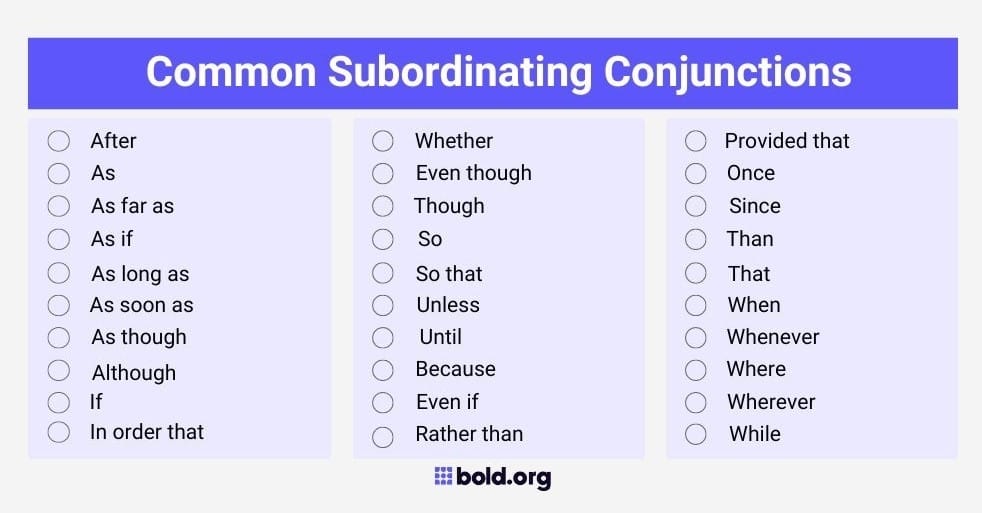
Dependent Clauses with Relative Pronouns
On the other hand, relative pronouns, such as "that," "which," "who," "whom," and "whose," are used to introduce dependent clauses that provide more information about a noun. This type of dependent clause is also known as an adjective clause because it provides additional information about the noun. The entire dependent clause, therefore, functions like adjectives normally do.
Consider this sentence:
“The student who received the highest score won the scholarship.”
Here, the relative pronoun 'who' introduces the dependent clause ('who received the highest score'). The adjective clause (which is just a specific type of dependent clause) is, therefore, the phrase "who received the highest score" and provides additional information about "the student."
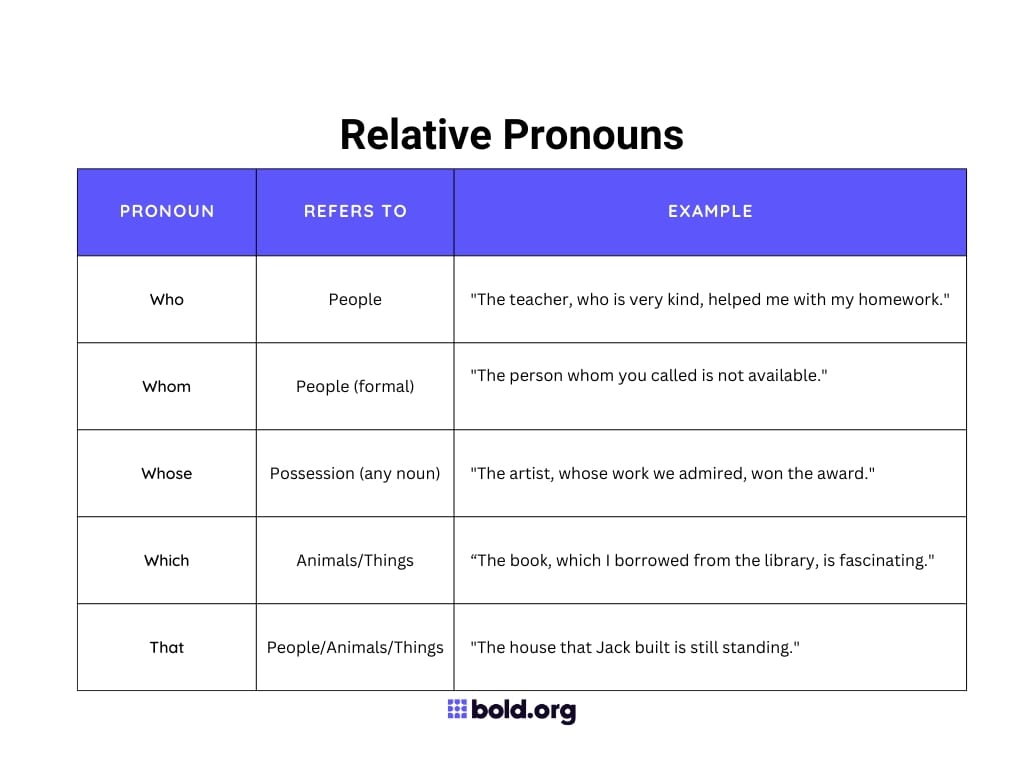
Both the relative pronoun and the subordinating conjunction plays a specific role in enriching sentences and making them more informative.
Calling all writers! We've compiled a list of the best writing scholarships to apply for, specific to your passion for the written word!
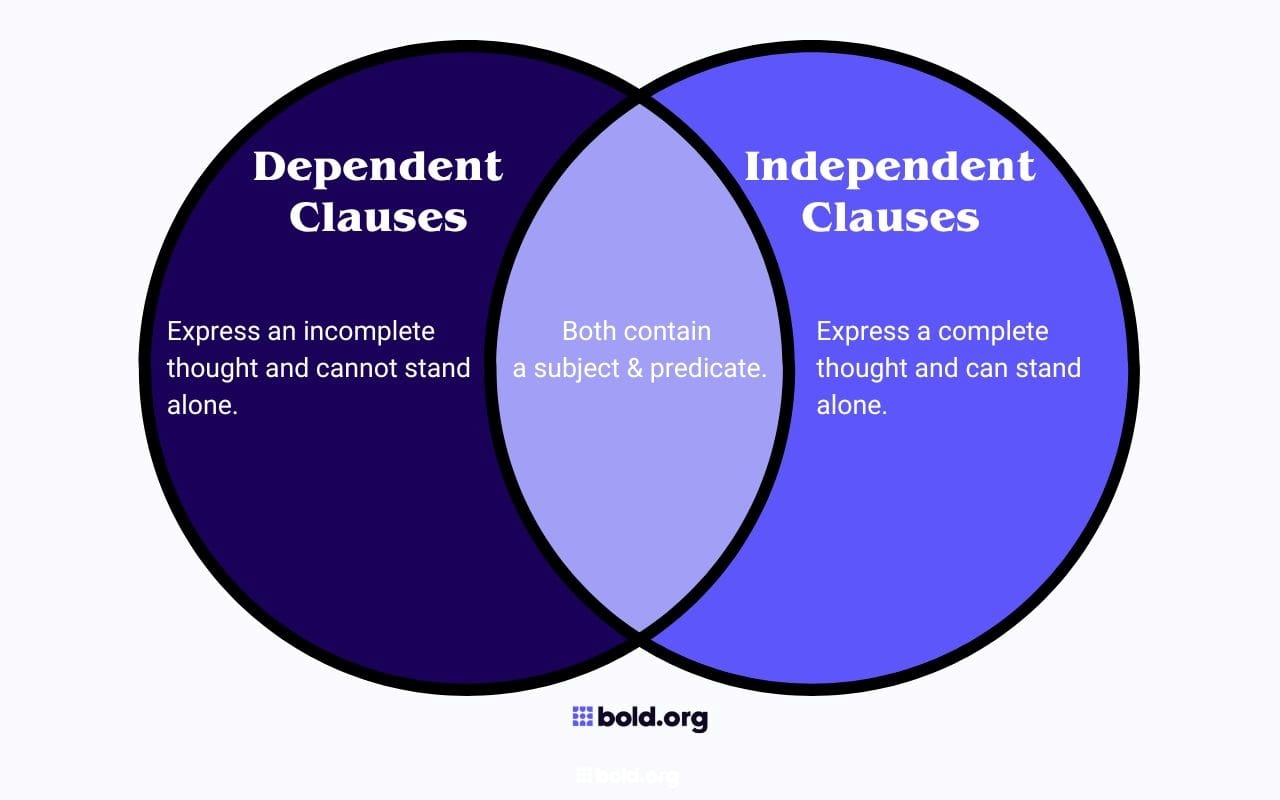
The Difference Between Independent and Dependent Clauses
Understanding the difference between independent and dependent clauses is crucial for improving your sentence construction skills and transforming you into a better writer.
Independent Clauses: The Stand-Alone Sentences
An independent clause is a group of words that forms a complete sentence on its own. It contains both a subject (the 'doer' of the action) and a predicate (what that 'doer' is doing).
Here are some examples:
- She loves to read.
- The dog barked loudly.
In each of two separate sentences in these examples, there is a clear subject ('she', 'the dog') and predicate ('loves to read', 'barked loudly'), making it an independent clause that expresses a full idea.
Dependent Clauses: In Need of Support
On the other hand, a dependent clause cannot stand alone as a sentence because it does not convey a complete thought. While it may have both a subject and predicate, it leaves us with unanswered questions. You can usually recognize dependent clauses by their resemblance to an incomplete thought.
Consider these sentences:
- Although she loves to read.
- While the dog barked loudly.
These sentences have subjects and predicates but introduce an element of anticipation or conditionality with words like 'although' and 'while.' They leave us waiting for more information, hence their dependence on other clauses to form complete sentences.
Any sentence with a dependent clause is automatically a complex sentence. This is in contrast to a simple sentence, which is composed of a single independent clause.
Get Matched to Thousands of Scholarships
Create your Bold.org profile to access thousands of exclusive scholarships, available only on Bold.org.
Create Free ProfileSpotting the Differences Between Dependent and Independent Clauses
So, how can you distinguish between a dependent and independent clause?
- Look for completeness: If removing the clause from the sentence still leaves you with a full thought, it's an independent clause.
- Examine for subordinating conjunctions or relative pronouns: Words like 'although', 'because', 'who', or 'that' often introduce dependent clauses.
Remember these tips, as they will help you create well-structured sentences. In the next section, we'll dive deeper into how specific words, such as subordinating conjunctions and relative pronouns, play a role in introducing dependent clauses.
If you need some more help grasping what an independent clause is, check out our blog on independent clauses!
Connecting Ideas: Coordinating Conjunctions for Independent and Dependent Clauses
Think of a sentence as a bridge and each clause as a section of that bridge. Coordinating conjunctions are like beams that support and connect these sections, making sure your sentence - your bridge of communication - is strong and clear.
They include familiar words like for, and, nor, but, or, yet, and so – which also happen to be the infamous seven coordinating conjunctions that you can memorize with the helpful acronym, FANBOYS. These connecting words are key components of sentence construction, so make sure you have a keen grasp of them.
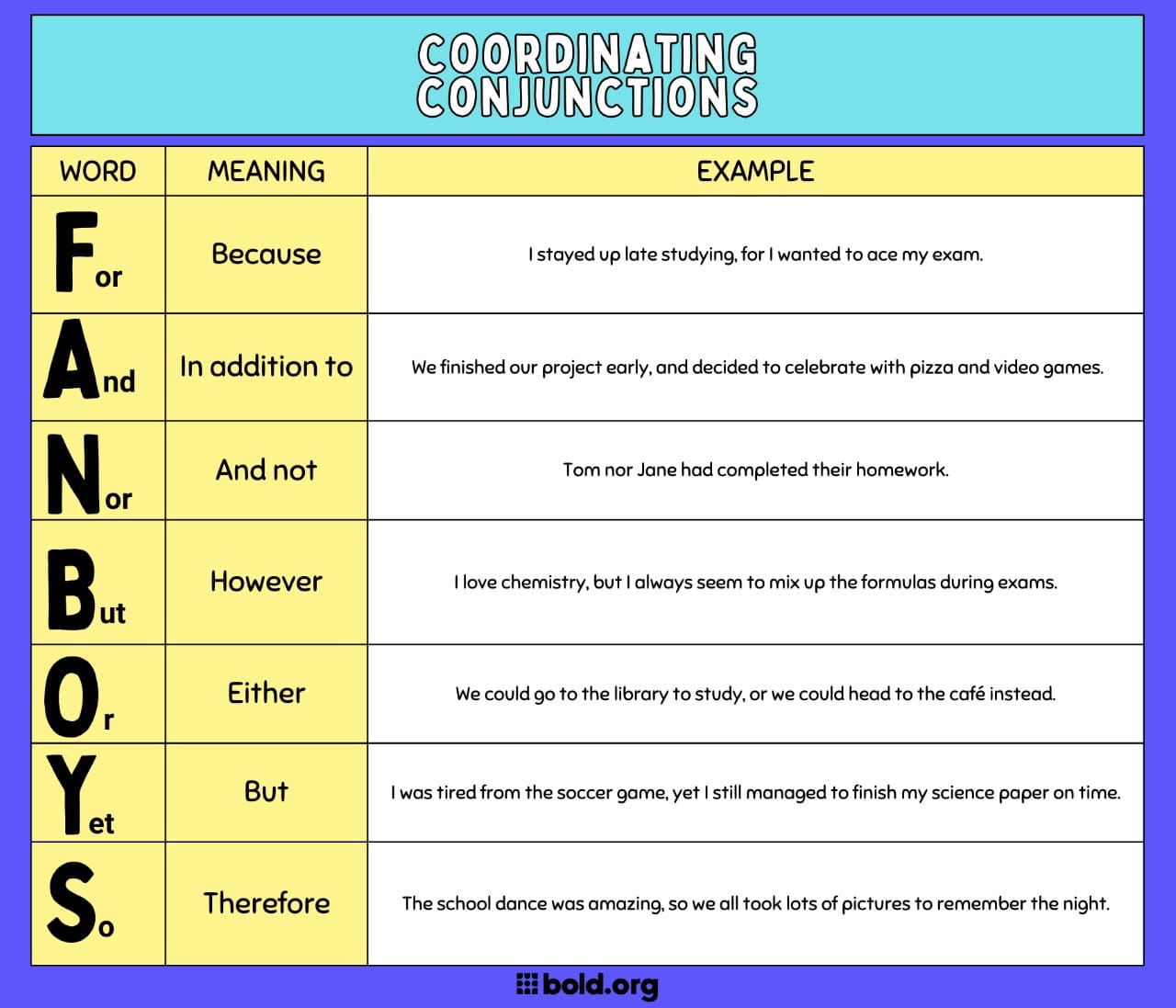
How to Use Coordinating Conjunctions
Here are some guidelines for using these conjunctions effectively:
- Use and to add similar ideas:
- Example: "I submitted my scholarship application, and I started drafting my research proposal."
- Insert but or yet when contrasting ideas:
- Example: "She excelled in mathematics, but literature was a challenge."
- Choose or or nor to present alternatives or negate:
- Example: "Either apply for a grant, or start a fundraising campaign."
- Opt for for or so when showing cause or effect:
- Example: "He aimed to reduce student debt, so he created a targeted fund."
Common Errors to Avoid
Be careful with a comma splice — when two independent clauses are incorrectly joined by just a comma without a conjunction:
- Incorrect: "She won the fellowship, she starts her project in June."
- Correct: "She won the fellowship, and she starts her project in June."
Watch out for fused sentences too; they happen when two independent clauses are mashed together without any punctuation or conjunction:
- Incorrect: "The deadline is tomorrow I haven't finished my essay."
- Correct: "The deadline is tomorrow, but I haven't finished my essay."
On the topic of essays, one of the most important ones a student will write is their college application personal essay. With our guide on how to start your college essay, you can be sure that this important task in your life will be as stress-free as possible!
Punctuating Dependent Clauses
Punctuation matters just as much as the words and phrases themselves.
Punctuating Commas Correctly with Dependent Clauses
When it comes to commas:
- Place a comma after a dependent clause when it precedes an independent clause, as in "While I was reading, the phone rang."
- If the dependent clause follows, you usually won’t need a comma: "I missed the bus because I woke up late."
- The use of a comma before a subordinating conjunction is optional and generally depends on whether you want to emphasize the contrast or pause for effect.
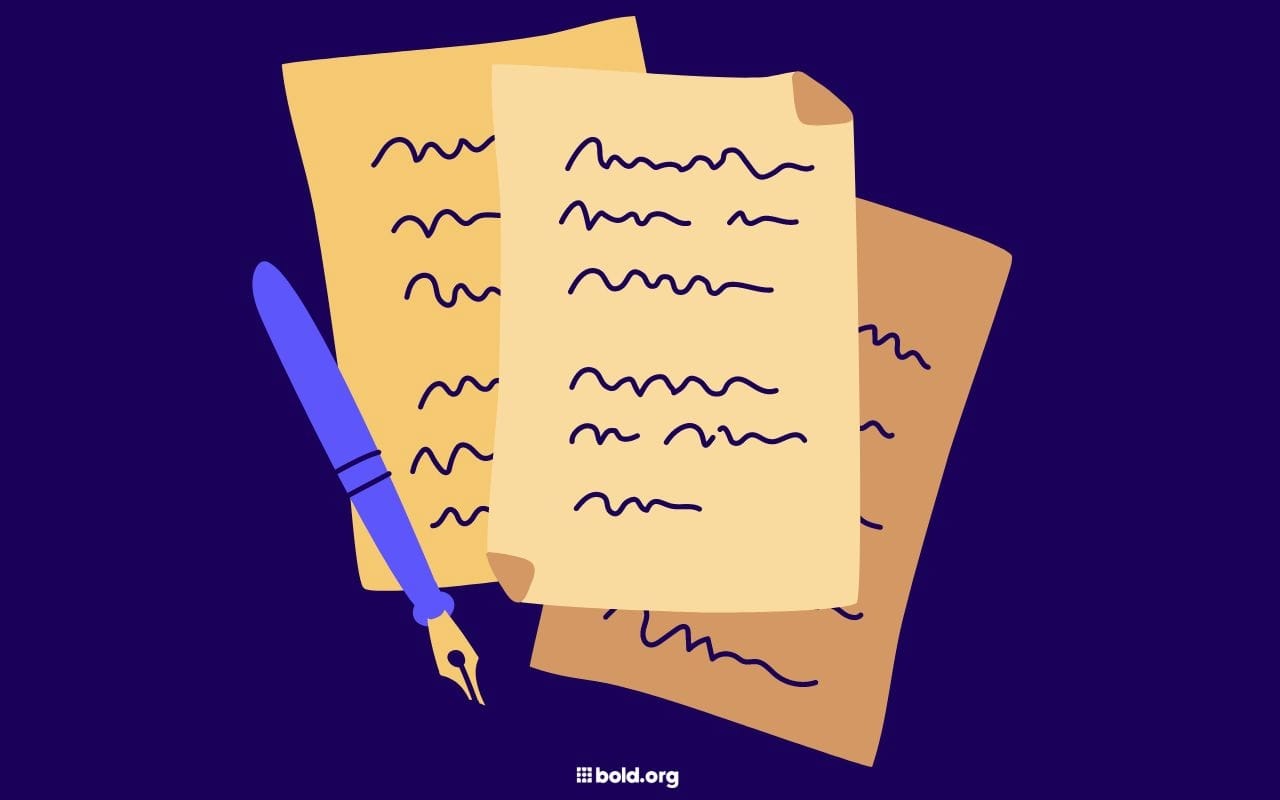
Semicolons for Separating Independent and Dependent Clauses
Semicolons have their own unique role:
- Use semicolons instead of a period or comma to separate two independent clauses that are closely related: "I finished my homework; now I can watch my favorite show."
- If an independent clause is followed by a conjunctive adverb (like however, therefore) leading into another clause, use a semicolon before the conjunctive adverb and a comma after: "I planned to study all night; however, I fell asleep early."
By recognizing these characteristics and applying these punctuation guidelines, you'll write sentences that are not only grammatically correct but also rhythmically pleasing.
Ready to put your newfound grammar abilities to the test? Apply for a scholarship out of our thousands of options, and start saving for a college education!
Common Errors in Using Dependent Clauses
Understanding dependent clauses is a crucial step in mastering sentence structure. However, many people encounter difficulties along the way. Let's explore two common errors involving dependent clauses: sentence fragments and run-on sentences.
1. Sentence Fragments
A sentence fragment is an incomplete sentence. It often lacks either a subject or a verb or fails to express a complete thought. One common source of sentence fragments is using a dependent clause on its own. For example:
- "Because she was late."
This clause leaves us hanging, creating an expectation without fulfilling it. To fix this, we need to add an independent clause:
- "Because she was late, she missed the first half of the lecture."
2. Run-On Sentences
On the other hand, run-on sentences occur when multiple independent clauses are combined without proper punctuation or conjunctions. If a dependent clause incorrectly connects two independent clauses, it results in a run-on sentence:
- "She was late she missed the first half of the lecture because her car broke down."
This sentence is difficult to read due to its lack of appropriate punctuation and conjunctions. Here's how you could correct it:
- "She was late, and she missed the first half of the lecture because her car broke down."
By understanding and avoiding these common errors, you can significantly improve the clarity and readability of your writing.
Now that you've mastered this component of the English language try your hand at some essay-based scholarships!
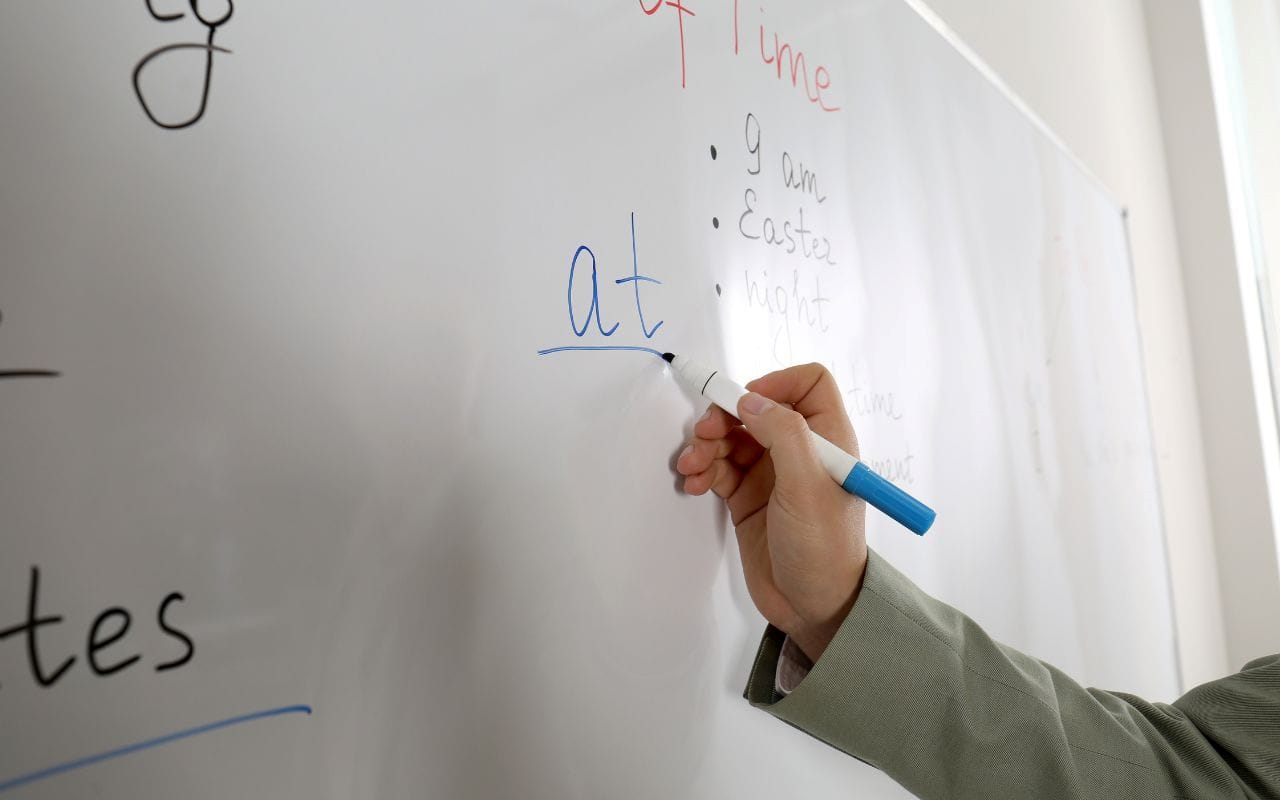
Frequently Asked Questions About Dependent Clauses
What is a noun clause?
A noun clause is a type of dependent clause that functions as a noun within a sentence. It can act as a subject, object, complement, or object of a preposition, exactly as nouns act in simple sentences. Noun clauses often begin with words like "that," "what," "who," "whom," "which," "where," "why," "how," "when," and "whether."
Examples:
- Subject: "What she said was surprising."
- Object: "I believe that he is honest."
- Complement: "My question is whether we have enough time."
- Object of a preposition: "She is interested in what he does."
In these sentences, the noun clauses "What she said," "that he is honest," "whether we have enough time," and "what he does" serve as essential components of the larger sentence structure.
How do dependent clauses improve my writing?
Dependent clauses add complexity and detail to your writing, allowing you to convey more information and show the relationships between ideas.
Can a sentence have more than one dependent clause?
Yes, a sentence can have multiple dependent clauses. They can be of the same type or different types and can be placed in various positions within the sentence.
Remember, mastering the art of using dependent clauses effectively will enrich your writing, making it more complex and nuanced. Keep practicing, and soon enough, spotting and correctly using these clauses will become second nature!
If you've got more questions about anything education-related, our scholarship blog is your next stop!

About Ellie
Ellie is an exceptional writer and researcher with expertise in financial aid, scholarship applications, and aid negotiation. Throughout high school, she applied for scholarships and was able to win enough to cover all of her external scholarship limit.
Ellie is a freshman at Brown University, majoring in Classics and Literary Arts with a focus on fiction. She’s currently a research assistant for the American Sign Language department at Brown University where she fulfills many different roles to promote ASL's presence on campus and in the local community.
Experience
Despite being a recent high school graduate, Ellie has already built a strong foundation as a writer. She volunteered with an online nonprofit to launch their pilot blog program, excelling as both a writer and editor. Her role as the editor-in-chief of her high school newspaper further honed her editorial skills, while her participation in international Debate & Forensics competitions enhanced her ability to craft compelling arguments and narratives. These experiences showcase her initiative, leadership, and dedication to the craft of writing.
Since joining the Bold.org team in 2024, Ellie has leveraged her extensive background as a scholarship applicant and recipient to help others navigate the scholarship application process. Her expertise also includes crafting resumes, writing cover letters, and preparing for interviews.
As a student who will invariably graduate with debt, she is increasingly sensitive to the financial pressures college students face. Motivated by her desire to make a meaningful impact, she aims to advocate for accessible financial resources and support systems that can help alleviate the burden of higher education costs for future students.
Ellie is driven by her passion to make a meaningful impact. Through her creative and engaging writing, she addresses relevant issues with the powerful art of storytelling. Ellie strives to make information accessible, helping students understand the nuances of college life.
Quote from Ellie
"There is a defiance in being a dreamer."